‘We’ll start the operation at Salim Ratjen’s wife’s home. We begin at seven o’clock this evening,’ Janus explains as he unfolds a map.
He points at a building in a patch of woodland where the Response Unit will lie in wait, just opposite Parisa’s house.
‘Have you managed to find out anything about who this Amira is, and where the phone with that number might be?’ Joona asks.
‘We don’t have any matches on the name. The phone with that number is somewhere in the Malmö area, but we don’t have any way of tracing it at the moment.’
‘For the time being we’re concentrating on the operation ahead of us,’ Gustav says. ‘Ratjen’s wife works as a nurse at a dental clinic in Bandhagen. She finishes work at six, and will be home around six forty-five if she stops to go grocery shopping at the supermarket like she usually does.’
‘Ratjen has planned the second attack for Wednesday,’ Janus says. ‘This is our chance to stop it.’
‘But you still don’t know what his wife’s role is?’ Joona says.
‘We’re working on that,’ Janus replies, wiping the sweat from his freckled forehead.
‘Maybe she’s just a middle-man.’
‘We don’t really know anything,’ Gustav says. ‘This is a gamble, sure, but at the same time... We don’t need much to fit these pieces together, one tiny detail could do it. If you can find out anything about how the plan works, who the target of Wednesday’s attack is going to be, or where it’s going to take place, then we might be able to stop this whole thing right now.’
‘I want to talk to the witness before the operation,’ Joona says.
‘Why?’
‘I want to know what the killer did between the first shot and the one that killed him.’
‘He said that stuff about Ratjen and hell. It’s in the report, I must have read it a hundred times,’ Janus says.
‘But that doesn’t account for the remaining time,’ Joona persists.
‘He picked up the spent shells.’
The internal forensic analysis isn’t complete, but Joona has studied the splatter patterns, the blood on the floor and the convergence points, and he’s sure that the post-mortem is going to show that more than fifteen minutes elapsed between the first two shots to the victim’s torso, and the fatal shot to his eye.
For now, the forensics experts estimate that the sequence of events took no longer than five minutes in total.
Picking up the shells, moving around and uttering those few sentences could account for those five minutes.
If Joona’s right, though, there are still more than ten minutes that can’t be explained.
What happened during that time?
The killer is a highly skilled professional. There has to be a reason why he didn’t carry out the execution as quickly as possible.
Joona has no idea what that reason might be, but he has a feeling that there’s a vital piece missing from the picture, something much darker than what they’ve seen so far.
‘I’d still like to see her, if possible,’ he says.
‘We’ll arrange it,’ Janus nods, and tears open the seal on a large padded envelope. ‘There’s time, since the operation won’t be starting until seven o’clock. We’re meeting for a final briefing at five.’
He hands Joona a well-worn service pistol with an extra magazine, two boxes of ammunition, 9x19 parabellum bullets, and a set of Volvo keys.
Joona draws the pistol from its holster and looks at it. It’s a matte black Sig Sauer P226 Tactical.
‘Good enough?’ Janus says, and smiles as if he’s just said something very funny.
‘You don’t have any other shoulder holsters?’ Joona asks.
‘This one’s standard issue,’ Gustav replies, slightly bemused.
‘I know. It doesn’t really matter, it just moves around a little too much,’ Joona says.
Joona follows his handler’s black BMW down into the depths of the garage beneath Katarinaberget and parks in front of a rough concrete wall.
They’re far below the shelter’s immense, sliding doors.
He’s heard rumours that the Security Police had a secret prison, but didn’t know it was here.
His handler is waiting for him. He runs his ID through a card-reader and taps in a long code.
Joona follows the man into the airlock. Once the door to the garage has locked behind them, the man runs his card through another reader and taps in another code. They are let into the security control room. Joona slides his ID through a hatch and the guard behind the reinforced glass checks it.
Joona signs himself in and his irises and fingerprints are scanned.
He puts his jacket, pistol and shoes on a conveyor-belt, walks through the body-scanner and is allowed past the next airlock, where he introduces himself to a female agent whose dark-brown hair is in a thick plait over one shoulder.
‘I know who you are,’ she says, blushing slightly.
She returns his pistol, watches as he puts the holster back on, then hands him his jacket.
‘Thanks.’
‘You’re a lot younger than I expected,’ she adds, and her blush spreads to her neck.
‘So are you,’ he smiles, and puts his shoes back on.
They start walking, and the agent explains that they’ve moved Sofia Stefansson from the old ice-store to an isolation room in the machine house.
Joona has read and compared all the interviews that have been conducted with Sofia.
Her testimony is fairly consistent.
The few discrepancies can be ascribed to her fear: she wanted to be helpful and said what she thought her interrogator wanted to hear.
Saga’s interview with Sofia is the most useful: it’s fairly exceptional given the circumstances. She managed to help the witness remember the short conversation in which Ratjen’s name was mentioned by highlighting specific details.
Without that interview, they wouldn’t even have a case.
But if Joona is right about the timing, the witness has been keeping quiet about a large chunk of what happened.
The killer fired two shots, then moved quickly and purposefully, running over to grab the Foreign Minister by the hair, force him down on his knees, and then press the pistol to one of his eyes.
The killer treated his victim like an enemy, Joona thinks.
If you ignore the missing minutes, the attack looks more like something that happened in the heat of battle than an execution.
Sofia slipped and hit the back of her head on the floor, then lay there listening to the brief conversation about Ratjen before the Foreign Minister was killed by a shot to the eye.
‘I’m thinking,’ Joona explains, without the agent having asked.
‘You don’t have to explain,’ she says, stopping in front of a metal door.
The agent knocks on the metal door, tells Sofia she has a visitor, and lets Joona in, locking the door behind him.
Sofia is sitting on a dove-blue sofa in front of a television, watching an episode of the BBC’s adaptation of Sherlock Holmes . The television is connected only to a DVD-player. There are piles of discs in front of her, alongside a large plastic bottle of Coke.
Her face is pale and she’s not wearing any make-up. She looks like a child with her fragile body and light-brown hair pulled up into a ponytail. She has on grey tracksuit bottoms and a white T-shirt with a sparkly kitten on the front. One of her hands is bandaged, and she has grey bruises around her wrists.
Joona can see that, although she hasn’t accepted her new life yet and she’s terrified that they’re going to start torturing her again, she has started to understand that they aren’t going to kill her, but they aren’t going to let her go any time soon either.
‘My name is Joona Linna,’ he says. ‘I used to be a detective... I’ve read all the interviews with you. Everything tells me that you’re entirely innocent, and I understand why you’re frightened given the way you’ve been treated here.’
Читать дальше
Конец ознакомительного отрывка
Купить книгу
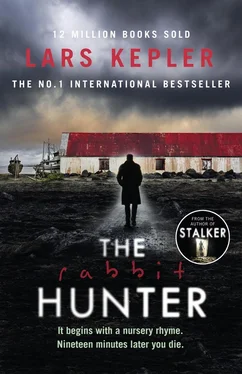
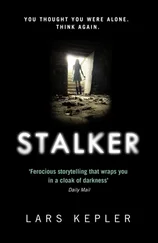
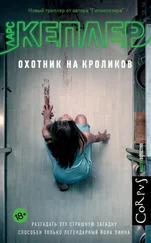
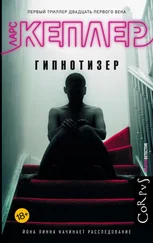
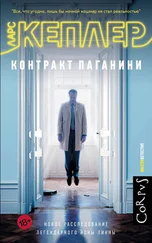
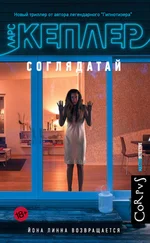
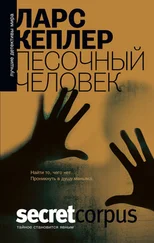
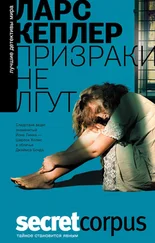

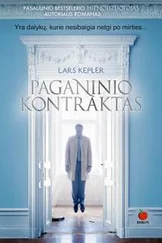
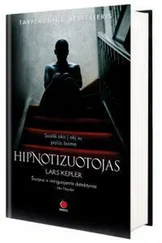
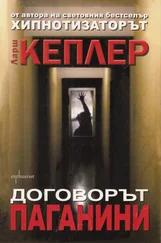
![Ларс Кеплер - Гипнотизер [litres]](/books/402890/lars-kepler-gipnotizer-litres-thumb.webp)